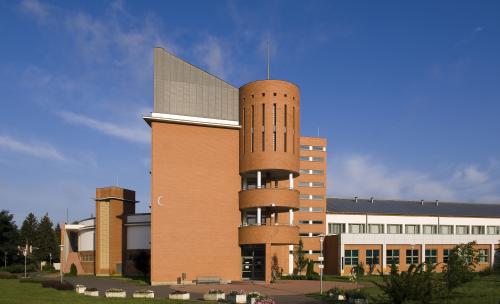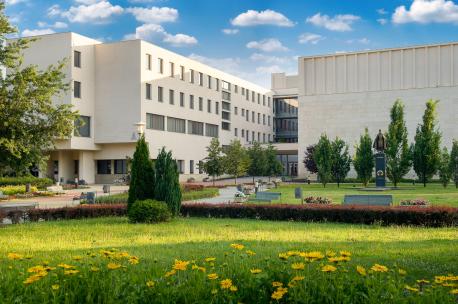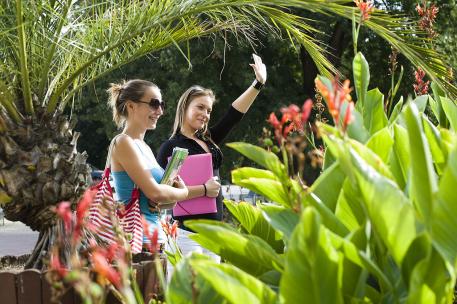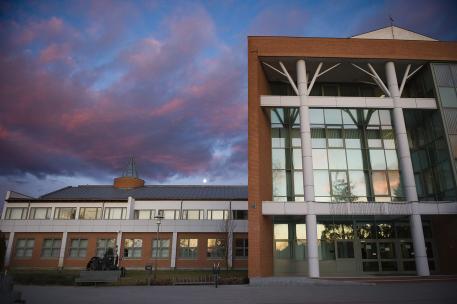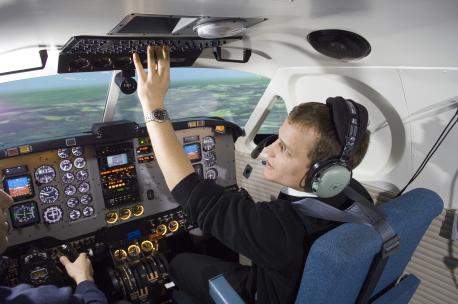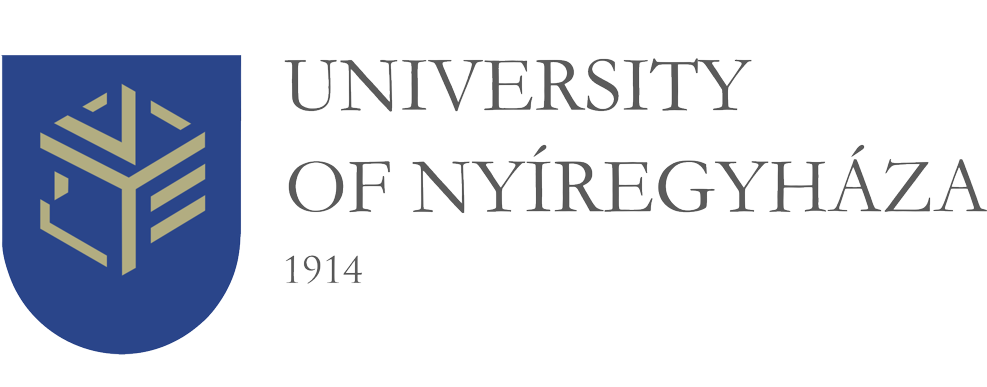The University of Nyíregyháza is one of the outstanding institutions of the universities of applied sciences in the country, where research, high-quality education and personal attention are combined with an excellent infrastructure.
The institution plays a regional role primarily in the Northern Great Plain, and within it, in Szabolcs-Szatmár-Bereg county, which is located in the north-eastern part of the country, on the eastern border of the European Union, approximately 240 km from the capital. By its territory, it is the seventh-largest and by its population, it is the third most populous county, it is bordered by Ukraine in the northeast, Romania in the southeast, and Slovakia in the northwest. The central role of logistics, which has Eastern European and national significance, is indisputable. Nyíregyháza is the seventh-largest city in the country, with almost 120,000 inhabitants. It is a dynamically developing city, the economic and cultural engine of the region.
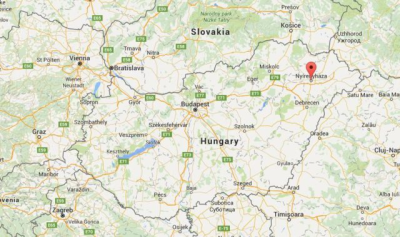
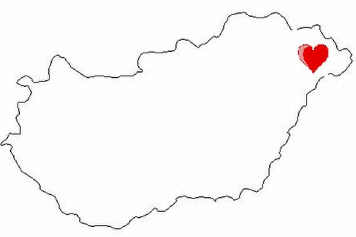
Nyíregyháza is a popular tourist destination because of Sóstó, an area that has two lakes with minerals, providing a wonderful cure for locomotor diseases. Sóstó also has an open-air bath with several pools. In 2005 Aqua Park opened its doors to the public. Visitors can also have a wonderful time at the Zoo, the Village Museum and restaurants or can climb to the observation tower.
For more information you can visit: www.nyiregyhaza.hu, also our course catalogue:
Erasmus catalogue 2023
The University of Nyíregyháza is located in the green belt of the city, next to the Sóstó park forest, where it operates as a real campus and is currently home to more than 4,800 students.
The predecessors of the University of Nyíregyháza were institutions of higher education with national and international prestige, looking back on forty years of professional traditions and experience. As of the 1st of January, 2016, the institution has become a university of applied sciences, with the intention of preserving the values accumulated by the predecessors and implementing a strategy that is able to meet the ever-changing demands of the 21st century.
Our university has accepted the challenges of the 21st century, implementing an education and infrastructure development programme which has made us nationally and internationally known. The building complex of our campus as well as the innovation associated with it were awarded first prize at the architecture world competition of FIABCI and Wall Street Journal in the category of ”public buildings” in 2009. We also pay great attention to improving the quality of life of students with disabilities, as our university is accessible throughout the campus.
The local antecedents of agricultural and technical training at our university can be traced back to the 1930s. The history of teacher training in our predecessor institutions has been present in the city since 1914. During the organisational integration implemented in 2000 and from the internal structural transformation, the College of Nyíregyháza was established, which has been operating as the University of Nyíregyháza since 1 January 2016 as a university of applied sciences.
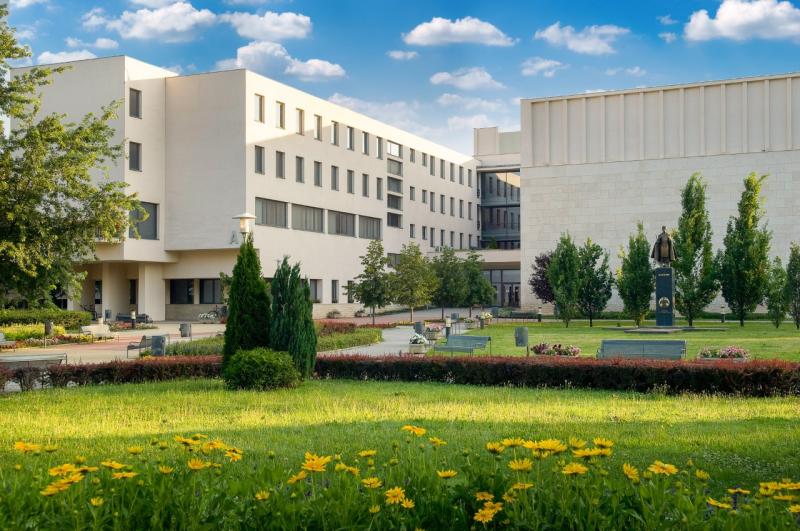
The University of Nyíregyháza has a specific education and research profile with the mission of providing academic research and knowledge transfer. Moreover, the university’s practical educational fields – bachelor’s programmes, bachelor dual training programmes, and master’s programmes, practice-oriented R&D platforms – meet the need of the current economic and social demands. The aim of the University of Nyíregyháza is to act as the catalyst of the area, fulfilling its educational role with the cooperation of the national and international higher education institutes. The University of Nyíregyháza offers a wide range of educational programmes. Based on the number of students, the most popular programmes are teacher training, engineering, agricultural sciences, economics, sports, natural sciences and informatics. The liberal arts, social sciences and art mediation are proportionally present in education. Furthermore, the research results and potentials of the university are frequently presented to the public as well, in the form of Open University Lectures and Researchers’ Night Lectures.
In the past ten years, infrastructural development projects have given the university the necessary facilities, infrastructure and state-of-the-art technology and equipment. Today, the campus is a real town within the town – winning the best public building in the world prize – a pleasant complex of modern buildings located in a picturesque park where students and teachers use the most advanced technical equipment and educational facilities available. In line with the needs of internationalization, the International Relations Group oversees the international collaborations of the University of Nyíregyháza, promotes mobility opportunities for students, academic and administrative staff and researchers, and supports the initiatives to submit international projects under Pannónia Scholarship and CEEPUS programmes as well as other projects.
We carry out research and train specialists in a total of 12 institutes in the fields of humanities, teacher training, social sciences, economics, arts, engineering, agriculture, informatics, natural sciences and sport. Our training structure includes higher education vocational training, bachelor’s training, teacher training, disciplinary master's training and specialised in-service training. We cover almost the entire spectrum of pedagogy. We are characterised by practical knowledge, practice-oriented training, extensive corporate relations, a livable community, and decades of educational and professional experience based on tradition (eg, in the fields of technical, agricultural and teacher training).
Connecting with 3 main disciplines (inanimate natural sciences and mathematics, living natural sciences, humanities and social sciences), the University of Nyíregyháza conducts research and development activities in twenty-eight disciplines, including agricultural sciences, agro-technical research, biological sciences, humanities, philosophy and historical sciences (psychology, education), earth sciences, environmental sciences, economics (sociology, regional sciences), technical sciences, linguistics and literature, as well as scientific work in the fields of the arts and sport.
An important goal of the University of Nyíregyháza is to become international and to expand international relations, therefore we support and assist our future partners and foreign students in the successful completion of their studies. The institution has well-functioning European Union mobility programs, which provide a great opportunity for teachers and students to develop professionally, learn about international cultures and gain invaluable experience. The internationalisation process of our university is strengthened by cooperation with South Korea, which can provide our students with international internship opportunities in the agricultural field. Our latest partners in educational-research collaborations are the Sentral Digital College Kuala Lumpur, the University of Kajaani, and the Language School of the University of Malta for the methodological renewal of English language teaching.
We treat the further internationalisation of the institution and the increase in the number of foreign students as a strategic goal. That’s why, in addition to increasing our international visibility, we have placed the main emphasis on building international relationships and participating in educational and research collaborations in recent years. To achieve the above, we have managed to make significant organisational, human resource and infrastructure expansions. The background of education, accommodation, IT, as well as the organisation and human resources for the reception of students studying in a foreign language, is ensured at a high level.
We currently offer a total of 11 undergraduate 2 graduate degrees in English,1 one semester specialist training and 2 one-year preparatory programs in English to international students. Outstanding from our training offer is the 2-semester course ‘Hungarian as a foreign language’, which we also offer as part of a summer university.
More about our training in English:
https://english.nye.hu/en/node/21
We are open to educational, research, and other general and cultural relationships. The institution is willing to be involved in any initiative that helps to establish cooperation, especially in the fields of agricultural and technical sciences, as well as tourism, IT and management.
We consider the reception of students participating in the Stipendium Hungaricum scholarship program extremely important for the future. In the field of Pannónia Scholarship Programme and incoming Erasmus+ Programme, we are also planning student, teacher, researcher and staff mobility exchanges to strengthen international cooperations.
In addition to foreign students, we also welcome our international teaching and research partners to further strengthen the dissemination of science without borders.
Possible areas of cooperation in research:
Agricultural research groups: Sustainable nutrient management and phytoremediation; Preservation, development and adaptation of biological bases to sustainable landscape management
Food science research
Research groups: Drying of agricultural and food materials; Agricultural and Molecular Research and Service Group
Environmental science research
Research groups: Climate change and the impact of habitat change on biodiversity.
Mathematics and IT research
Research groups: Dyadic harmonic analysis and its applications; Evolutionary game theory; Formal languages and automata; Mobile application development; Internet of Things; Library informatics.
Socio-geographical research
Research groups: Complex urban and tourism geography research.
Technical and agro-technical research
Research groups: Optimisation of additive manufacturing processes; Investigation of borehole machining of industrial plastics in a cryogenic environment; Energy evaluation of tractor power transmission systems; Mechanisation of sustainable agricultural technology systems; Utilisation of solar energy.
Economic research
Research groups: Regional development and politics, spatial shaping processes in our county and the Carpathian Euro-region; Management, tools and methodology of economic development strategies; The practice of economics.
Educational research
Research groups: Teacher Training and Continuing Education Research Group; LEGO Innovation Studio.
Applied humanities research
Research groups: Reading Research Group; School violence.
Research in the social sciences and history
Research groups: Social Sciences Research Group; Modern era extremities
Linguistic and literary research
Research groups: Information Society Research Group; Regional Literary Research Workshop; Kindergarten and teacher training research group
Sports science research
Research groups: Prevention, fitness and special movement therapy, impact assessment of conscious health behaviour; Motor performance and anthropometric characteristics.
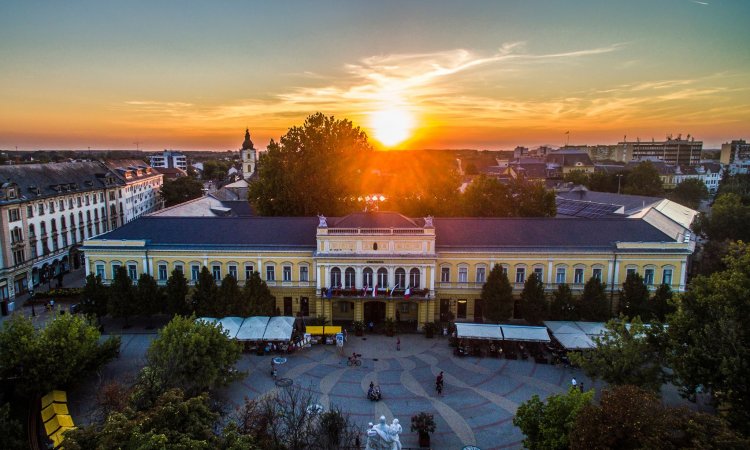
Photo: Árpád Kohut

